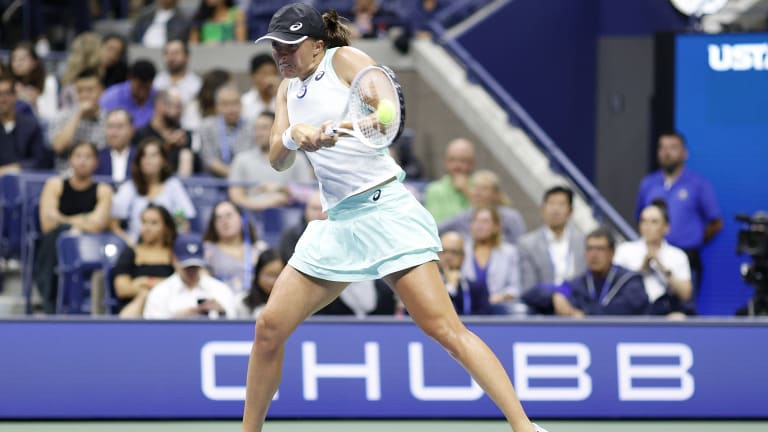US Open
Unsatisfied Jessica Pegula falls to Iga Swiatek at US Open, in third Slam quarterfinal loss of season to a world No. 1
By Sep 08, 2022US Open
Eric Butorac will replace Stacey Allaster as US Open tournament director
By Nov 17, 2025US Open
Beyond The Champions: 2025 US Open Winners and Losers
By Sep 10, 2025US Open
In US Open defeat, Jannik Sinner faces his shortcomings
By Sep 09, 2025US Open
Amanda Anisimova's US Open fortnight wasn't just "incredible"—it was redemptive
By Sep 09, 2025US Open
Overcoming Doubt, Finding Deliverance: Six WTA takeaways from the 2025 US Open
By Sep 08, 2025US Open
Service and a smile: How Carlos Alcaraz conquered Jannik Sinner at the 2025 US Open
By Sep 08, 2025US Open
Carlos Alcaraz captures sixth Slam and second US Open title, dethrones No. 1 Jannik Sinner
By Sep 07, 2025US Open
Alcaraz vs. Sinner US Open final start delayed by 30 minutes
By Sep 07, 2025US Open
Blinding Lights: Amanda Anisimova rues missed opportunities, serve woes after US Open final
By Sep 07, 2025Unsatisfied Jessica Pegula falls to Iga Swiatek at US Open, in third Slam quarterfinal loss of season to a world No. 1
The top-ranked American has enjoyed a career year, but the Pole was too consistent over two tight sets.
Published Sep 08, 2022
Advertising
Advertising

When Swiatek had advantageous court positioning, she let her impeccable groundstrokes do the rest.
© Getty Images
Advertising

Pegula's frustration bubbled over at times, but she reset quickly.
© Getty Images
Advertising

Swiatek is now 55-7 this season, and 19-2 at the majors.
© Getty Images